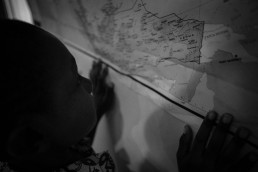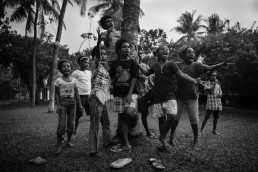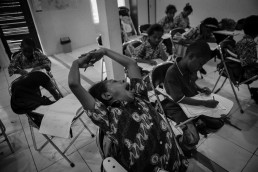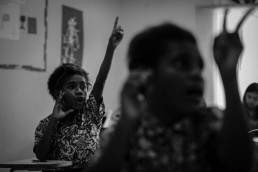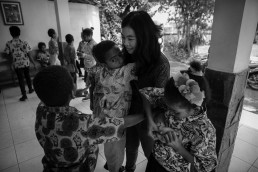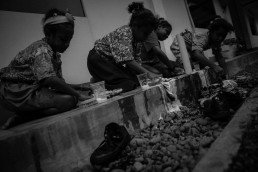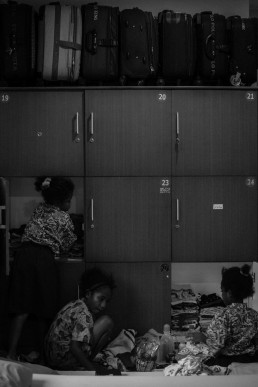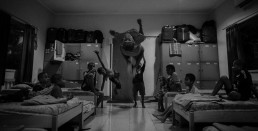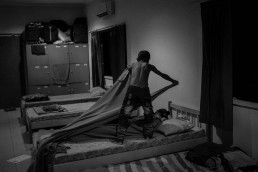Pearls At the End of the Archipelago
PEARLS AT THE END OF THE ARCHIPELAGO
Aditia Noviansyah, Tempo
“Give me one thousand elderly people and I will remove Mount Semeru by the roots. Give me ten young men and I will shake the world.” These are the words of Soekarno, Indonesia’s first president, which are more than apt to illustrate the optimism of several Papuan children living and learning across Java.
The Department of Education, Youth and Sports in Papua claims to oversee the work of 3,464 teachers; but this number—though it seems large and plenty—is far from enough as there are more than a fair share of educational institutions which suffer from the lack of teaching staff. Often, a teacher is assigned to teach six different classrooms.
The regional government has attempted to overcome the issue by sending native Papuan children to receive education in areas which are equipped with more progressive educational facilities, such as Jakarta. One of the facilities is chaired by Professor Yohanes Surya, whose reputation as an educator is widely celebrated. His dream has always been to help advance the nation’s scientific and technological pursuits—and he aims to educate Papuan children with hopes that one day they are able to share their knowledge and in turn help educate the children in their hometown.
Mentored by highly trained educators, these children live in the school dormitory. They catch up on their lessons fairly quickly. They are taught how to read and count. And by giving them knowledge about the world, these children gradually learn to be confident about their own abilities. They no longer hide behind their illiteracy and instead they try their best to solve various problems in different fields of study.
The children begin their lessons at 5 AM and the studying activities continue throughout the day until 9 PM. They study even harder for their exams, often staying up later than 9 PM. It is clear by the way they handle their studies that they have every intention to beat the odds and help deliver their hometown from the plaguing illiteracy and poverty.
On Friday, school activities end at 3 PM and the students will be busy washing their shoes and school uniform. Once their chores are done, they are allowed to use their cellular phones, which the Resident Assistant or Guide confiscates during school hours. As expected, the moment is one the students happily celebrate. They can contact their parents, friends and other family members, or listen to songs and watch television on their cellular phones.
I believe empowerment is a tangible act that helps change people’s attitudes for the better.

